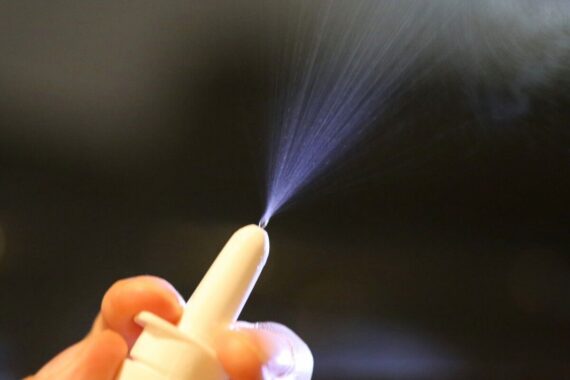Over the counter (OTC) nasal sprays can reduce the length of upper respiratory tract infection by around 20%, and cut antibiotic risk by more than a quarter, a large scale study published in The Lancet has found.
Two nasal sprays that trap, neutralise or reduce viruses in the nose or throat were compared to the impact of an online resource promoting physical activity and stress management.
Some 13,799 adult patients from 332 GP practices, all of whom had an existing health problem or risk factor for infection, and/or recurrent respiratory infections in the past, were randomised to receive one of the three interventions, or were put into a control group to receive brief usual self-care advice.
Over a period of six months, the control group self-reported an average of 8.2 days of respiratory tract illness.
But those that used a Vicks-First-Defence gel-based nasal spray that uses a microgel to trap and neutralise viruses in the nose experienced just 6.5 days of illness on average.
And those that used a saline liquid-based nasal spray that reduces levels of virus in the nasopharynx experienced a mean of 6.4 days of illness.
Meanwhile, those that were directed to the online resource promoting exercise and stress management experienced 7.4 days of illness on average.
All three interventions resulted in reduced antibiotic use, reducing relative risk reduction by more than 25%, as well as reducing the number of days with more severe symptoms.
Paul Little, professor in primary care research from the University of Southampton, who led the trial, said: ‘Given these results, our advice, particularly for those at higher risk from infections or those who get recurrent infections, is at the first sign of cough, sore throat, cold or flu like symptoms, use a nasal spray to prevent it from developing fully, and to use the sprays preventatively after close exposure to people with infections.’
And Dr Adam Geraghty, associate professor of psychology and behavioural medicine at the University of Southampton, who led the exercise and stress reduction part and co-led the study, said: ‘If widely used these interventions could potentially have a valuable role for reducing antibiotic use and antimicrobial resistance, and in reducing the impact of respiratory viruses for patients, the health service and the wider economy.’
A version of this story was first published by Pulse’s sister title The Pharmacist















Soon we’ll be back to inhaling Vick’s vapour rub in a bowl of hot water. Maybe grandma was right after all?
But I want the strong antibiotics to stop it going to my chest. My goddaughters second cousin had it turn to sepsis
you forgot to add the most common adverse event was headache or sinus pain:
4·8% in the usual care group
4·5% in the saline group
4·5% in the behavioural intervention group
7·8% in the Vicks gel-based group